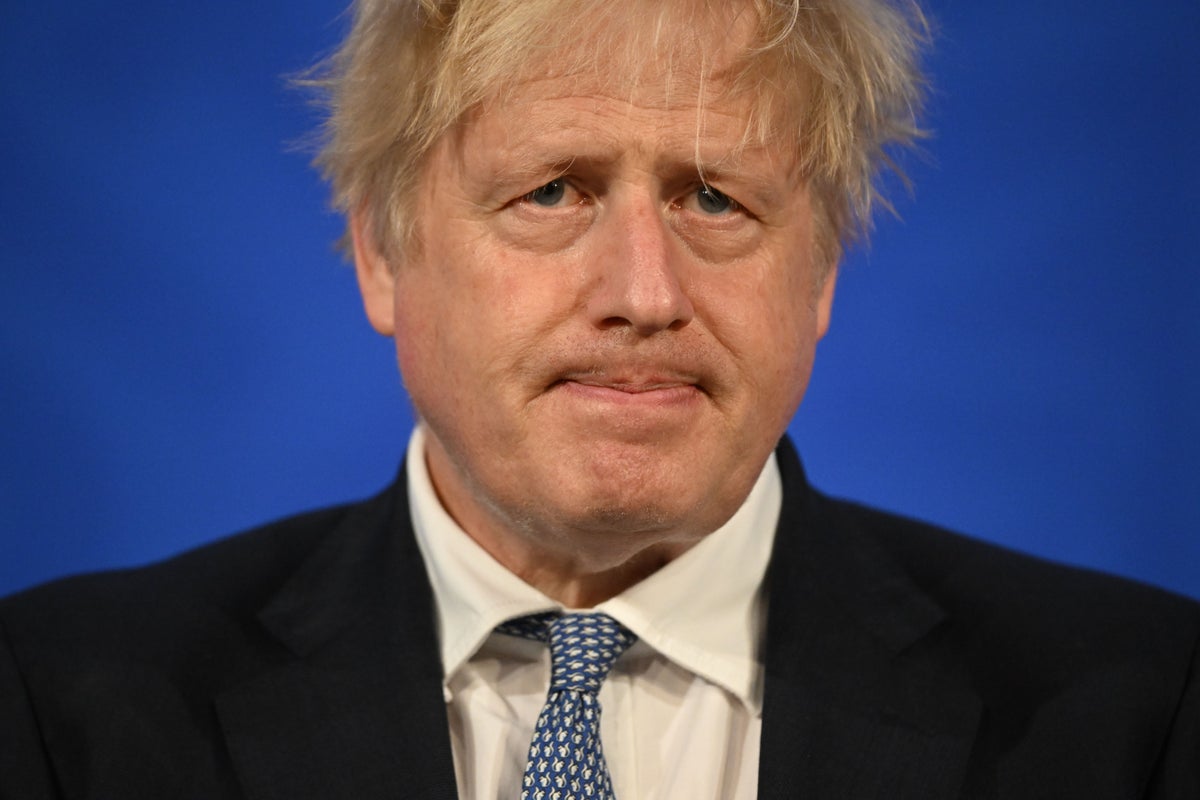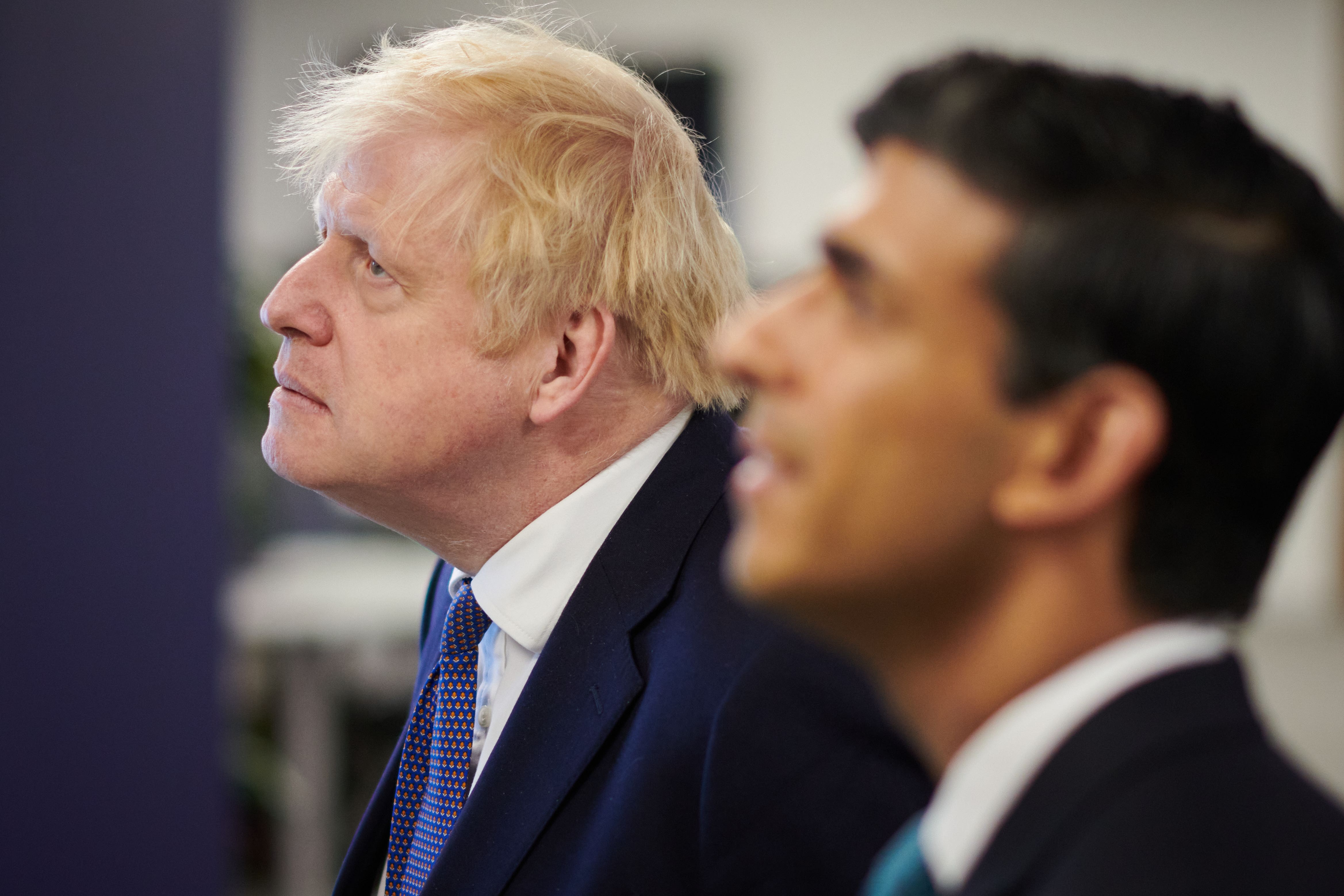
An extraordinary row over Boris Johnson’s WhatsApps risked descending into farce as the former prime minister said he was happy for his messages to be given to the Covid inquiry – only for the government to say it did not have them.
Downing Street was forced to deny allegations of a cover-up as it stuck by its stance that it should not be forced to release “irrelevant” material concerning the private lives of government staff.
The head of the inquiry has already threatened possible criminal sanctions if the Cabinet Office fails to disclose Mr Johnson’s diary entries and WhatsApp messages.
Officials have now told the inquiry that they do not have all the documents that have been demanded. It came as Mr Johnson’s spokesperson insisted that the former PM had “no objection” to handing over the evidence, adding that the “decision to challenge the inquiry’s position on redactions is for the Cabinet Office”.
The chair of the inquiry, Heather Hallett, has demanded a witness statement from a senior civil servant – accompanied by a statement of truth confirming the documents are not held – if the government fails to produce the requested messages, notebooks and diaries by 4pm on Thursday.
Allies of the former prime minister are reported to have said that he gave his lawyers, who were paid for by the Cabinet Office, access to the material.
It has emerged that legal advice given to the government last year, seen by Bloomberg, said documents recording discussions between ministers during the pandemic should not be disclosed because doing so would “undermine the principle of collective responsibility”.
The advice also revealed that civil servants had graded documents sought by the Covid inquiry using a “traffic light” system, according to their political sensitivity.
Rishi Sunak said his government was acting “in a spirit of transparency and candour” amid the row. But he has come under increasing pressure from senior Tories to find a way to end the dispute.
Former business secretary Sir John Redwood told GB News: “There has to be an agreement. The public will want reassurance that the inquiry can have all relevant information. And the Cabinet Office, and the ministers and senior officials involved, will obviously want to make sure that details of their private lives, or comments that aren’t really relevant to the inquiry, are protected from wider public view.”
Michael Heseltine told The Independent it was a “complex situation”, and said the demand could “create the most incredible straitjacket on ministerial behaviour if they [ministers] have to account in public for everything they do in private”.
“There is a balance somewhere in here, which is difficult to define, but I want to protect the ability of ministers to behave in a natural way,” Lord Heseltine added.

Former justice secretary David Gauke said there “may be scope for a compromise”.
Tensions between Mr Sunak and Mr Johnson erupted again last week after officials reported the former prime minister to police over fresh claims he had broken lockdown rules by hosting gatherings at his grace-and-favour home, Chequers. A phone call between the two men this week has been cancelled.
As the Whatsapp row intensified, the former head of the civil service, Robert Kerslake, accused the government of a “cover-up”, saying: “There is some cover-up going on here to save [the] embarrassment of ministers.” Lord Kerslake told BBC Radio 4’s Today programme that, while protecting ministerial confidentiality was important, it would be “helpful” if the inquiry “prevailed in this fight”.
Labour said the evidence appeared to have “gone missing” and must be found and presented to the Covid-19 inquiry in order to avoid the “whiff of a cover-up”.
The prime minister’s official spokesperson denied the allegation of a cover-up, saying: “No. We want to learn the lessons about the actions of the state during the pandemic, [and] we want that to be done rigorously and candidly.”
He said there was no requirement for the government to “permanently store or record every WhatsApp”, as messages related to decision-making are copied over to an official record. He added that it was “down to individuals to decide what personal information they are able to hand over”.
A spokesperson for the former prime minister said: “Mr Johnson has no objection to disclosing material to the inquiry. He has done so and will continue to do so. The decision to challenge the inquiry’s position on redactions is for the Cabinet Office.’’
A Cabinet Office spokesperson said it was committed to its obligations to the Covid-19 inquiry and had already provided more than 55,000 documents, 24 personal witness statements, and eight corporate statements, adding that “extensive time and effort has gone into assisting the inquiry fulsomely over the last 11 months”.
They continued: “However, we are firmly of the view that the inquiry does not have the power to request unambiguously irrelevant information that is beyond the scope of this investigation. This includes the WhatsApp messages of government employees which are not about work but instead are entirely personal and relate to their private lives.”
Responding to the claims about the government having received legal advice not to disclose information that might undermine cabinet collective responsibility, a Whitehall source said the government would not be withholding any relevant information from the inquiry on those grounds.







